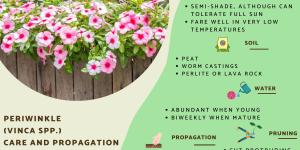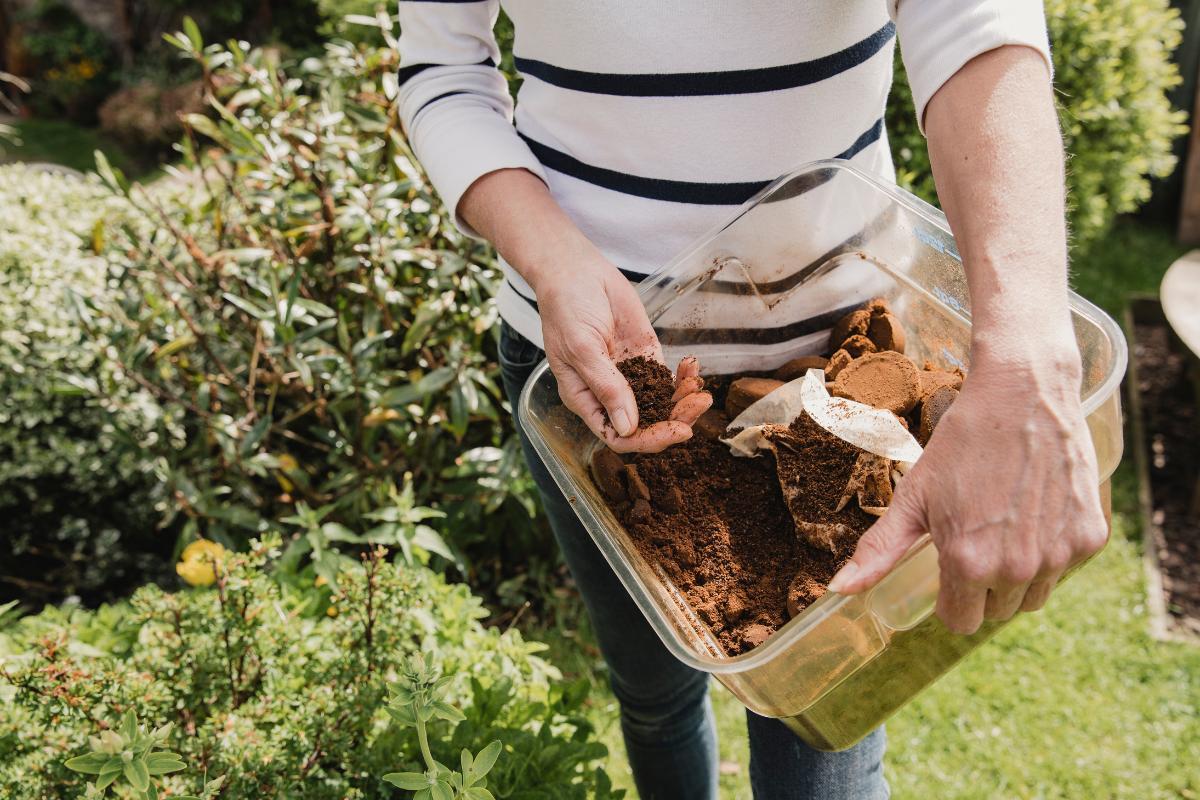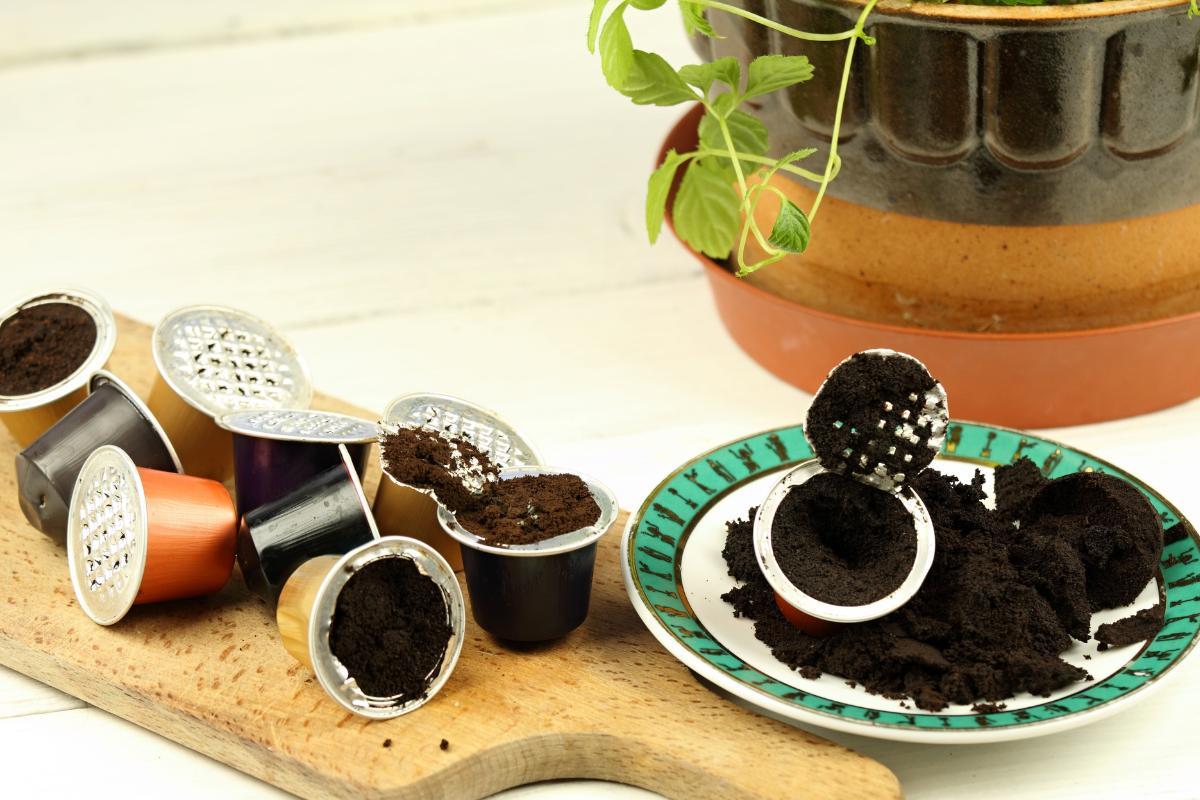Are Coffee Grounds Good for Plants?


Coffee grounds can be good for plants when used as fertilizer for the plant or a compost for the soil. This is thanks to the various benefits coffee grounds can have for plants, including contributing more nitrogen to the soil, stimulating rooting and generally improving the quality of the substrate. Using coffee in the garden can be a great way to ensure your plants are healthy and can also avoid pests. Since coffee grounds are natural, using them avoids the use of harsh chemicals or other substances which can have a detrimental effect on the garden's ecosystem.
At thedailyECO, we ask are coffee grounds good for plants? In addition to discovering the benefits of using coffee grounds in the garden, we look at how we should do so to ensure such benefits are optimized.
Are coffee grounds good for plants?
Coffee grounds can be beneficial for plants when used in the right way. This means ensuring we prepare it in the right way for the ground to achieve the benefits. It is also important we use it for the right plants. For example, coffee grounds can affect the pH levels of the soil. Different plants need different pH levels so you can use too much for the wrong plant.
The best way to use coffee grounds in the garden is to let it dry after use, although this will also depend on the plant. Mixing them into the soil will help to provide the right substrate. This is because plants need other nutrients which cannot be provided by coffee grounds alone.
Benefits of coffee grounds for plants
Coffee grounds for plants provide multiple benefits, which include the following:
- Nitrogen: coffee grounds have a high nitrogen content, an essential element for the development of plants. They have a carbon nitrogen ratio of 20 to 1, which is higher than many soils and beneficial for plants which require more nitrogen.
- Other nutrients: in addition to nitrogen, coffee contains other organic nutrients which contribute to its use as a fertilizer. Learn more about fertilizing plants with our article on the difference between compost vs. fertilizer.
- Growth: stimulates the production of plant mass.
- Oxygenation: coffee intervenes in the process of photosynthesis as it forms amino acids for proteins. It also helps in the production of sugars, lipids and many other components.
- Flowers: enhances flowering and fruiting thanks to the nitrogen content.
- Rooting: coffee grounds promote rooting, something which is necessary for the plant to absorb the right amount of water and nutrients.
- pH levels: acidifies the soil, thanks to the fact that coffee has an acidic pH. It is important to mention that the soil should not always be acidified and that it is advisable to know how to measure the pH of the soil before adding the coffee grounds.
- Bioavailability: increases the amount of acetic bacteria in the soil, which helps break down organic matter to make nutrients bioavailable.
- Protection: reduces the probability of harmful fungi settling, due to the presence of acetic bacteria.

Using coffee as fertilizer for plants
Coffee has high nitrogen content, which is why it serves as good fertilizer. One of the major benefits is that it works as a natural alternative to industrial fertilizers. Since the used coffee grounds are a waste product from making coffee, they are free. They also do not have the chemicals which industrial fertilizers often use and they do not add to the often environmentally harmful processes of this industry.
Liquid coffee as fertilizer
While it is most common to use coffee grounds as fertilizer, you can use prepared coffee also. This might be if you make a large batch and have coffee left over which would otherwise go to waste. Generally speaking, it is less wasteful to use coffee grounds. If you do use liquid coffee, you can use it as a replacement of irrigation water. This means it will work best for potted plants. Do not use if it has sugar, milk or anything else added to it.
Coffee grounds as fertilizer
As stated above, using coffee in the garden is best when using the dried coffee grounds. This doesn't mean you need to let them dry completely, if the used grounds are a little damp they will be fine. When you make coffee in a moka pot, pour over coffee maker or percolator, the used grounds can be removed and used as fertilizer. If you have a large garden, you can even ask a local cafe if they will donate their used coffee grounds since they usually throw them away.
Coffee grounds can be used in the garden in two ways:
- Compost: it can be integrated into the compost to begin the decomposition process. In addition, adding it to the compost helps reduce bad odors that can often develop from the compost maker. It can be used in both normal compost and vermicompost. In fact, worms quite like coffee grounds. For this method, the ideal dose is 2 grams of coffee grounds per kilo of soil. If it is to be combined with worm castings, manure or another type of fertilizer, coffee should not be more than 20% of the mixture.
- Soil: another alternative is to add the grounds directly to the substrate, whether in soil or in a pot. If you choose this way, it is important to sprinkle them over lightly, without adding too much, otherwise it could be counterproductive.
If you are thinking of using coffee grounds for vermicompost, you may want to learn how to make worm castings at home.
Coffee as a natural repellent for plants
Ground coffee serves as an excellent repellent against some pests in the garden. They are particularly helpful for avoiding infestations from slugs and snails that feed on plant leaves.
If you want to use it for these purposes, place a layer of coffee in the form of mulch as a top layer on the substrate. In this way the pests will not want to travel over the soil to the plant. It is less useful for flying insects such as aphids, although it may provide some protection.
Some plants themselves can help to avoid pests in the home. Find out what some of them are with our article on plants that repel mosquitos.

How not to use coffee on plants
We have detailed the benefits of coffee for plants when used in the garden, but it is important to know that using them in the wrong way can cause more harm than good. For this reason, we explain the things you need to avoid when using coffee in the garden:
- Type of coffee: do not use instant coffee as fertilizer or add it to the substrate of your plants. It will not work and can have ingredients which are not good for the plants.
- Ingredients: do not use coffee that has other ingredients such as milk, sugar, sweeteners, syrup or any other additives or flavorings. These can be harmful to the plants, as well as attract pests. Only the coffee grounds themselves should be used or liquid coffee made from these grounds without any other ingredients.
- Temperature: do not use hot coffee. You have to wait for the coffee to cool completely before using it on plants, otherwise you could burn your plants.
- Amount: excess coffee should be avoided as it can upset the balance of nutrients or prevent the plant from gaining nutrients from other elements in the substrate.
- Not all plants: it should not be used for plants that prefer alkaline soil, such as carnations, anemones or lilacs. Coffee acidifies the soil, so it is preferable to use it in moderate quantities. It is best to use it on acidophilic plants such as hydrangeas, African violets, azaleas, magnolias, roses, carrots or potato plants. Discover the different types of hydrangeas in our related guide.
If the leaves turn brown or yellow, it is an indication too much coffee has been used. This is because it acidifies the soil and if the pH is not adequate for that plant or becomes excessively acidic, the plant cannot absorb nutrients well and loses color in the leaves and stems, among other symptoms. Learn more with our article on reasons why my roses leaves are turning yellow.
If you want to read similar articles to Are Coffee Grounds Good for Plants?, we recommend you visit our Plant care and cultivation category.
- Martin, D.L., & Pleasant, B. (2008). The Complete Compost Gardening Guide: United States: Storey Publishing, LLC.







